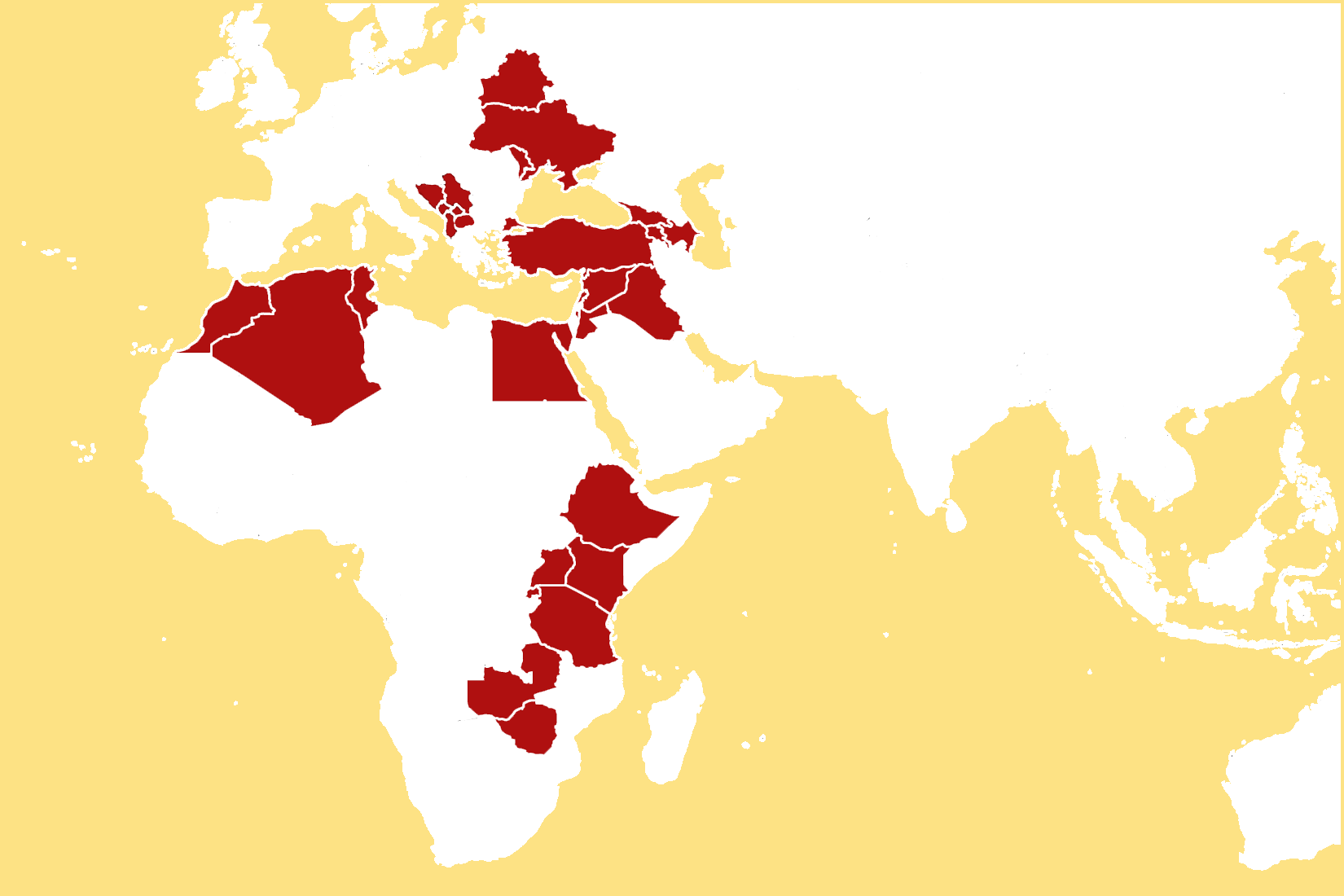The SI Creative Partnerships Programme supports projects that aim to strengthen democracy, human rights, and/or freedom of expression in Africa, the MENA region, the Western Balkans, and Turkey, as well as Eastern Europe. Applicants must be Swedish organisations leading projects in cooperation with thematically relevant partners abroad. The program replaces the previous project funding Creative Force, which focused on culture and media. With the SI Creative Partnerships Programme, it is also possible to apply for funding to conduct projects using culture and media, but as one of several possible tools.
Juan Obregon works at Emmaus in Stockholm. The organisation has received support for a project that aims to strengthen civic rights in Tunisia through digital activism and art. Human rights defenders will be trained in mobile journalism and documenting human rights violations through the project.
-For a small organisation like Emmaus, dependent on funding from various sources, SI provides a clear profile of what and how to seek funds. It is also very good that, after a pilot project like ours, it is possible to apply for funding for larger cooperation projects through other support from SI, says Juan Obregon.
Seed funding is an option for those who want to start a smaller project. For example, this year, the Swedish organisation Support Action Centre for Peace and Development received 200,000 SEK to establish a project with women in northwestern Syria. The project aims to provide women with tools in participatory leadership to advocate for rights issues.
-Seed funding from SI is of great value to us who want to contribute to democracy, justice, peace, and women’s rights in the Middle East. Through the project, we can try out new ideas. Funding from SI has made it possible for our project to strengthen women’s leadership in the work for secure housing for thousands of poor, single women particularly affected by the earthquake in northwestern Syria in February 2022, says Shaima Madboly, Executive Director of Support Action Centre for Peace, and Development.
SI also supports cooperation projects in the form of larger projects that contribute to knowledge exchange and capacity building for a partner organisation or target group. For example, this year, the University of Gothenburg was awarded nearly two million SEK to carry out a cooperation project in Ukraine. Over a million volunteers are fighting for Ukraine, and the training in international law is minimal. The project aims to develop a curriculum for defence colleges that can educate personnel in human rights and humanitarian law.
A seed project should have a clear ambition to be scaled up into a cooperation project. An example is the organisation Green Forum, which, together with civil society organisations in Zambia, conducts a cooperation project that emerged from a seed project. Structural barriers in Zambia make it difficult for women to reach leadership positions in politics. But by creating a coalition of women- and youth-led civil society organisations, they hope to achieve concrete change, including developing a common action plan on which policies need to change to give women more space in politics.
Within the SI Creative Partnerships Programme, project partners can be found in civil society, the private and public sectors, and can also consist of formal and informal cultural actors, journalist networks, or media organisations. An example is the Media Institute FOJO’s project in Serbia, Bosnia and Herzegovina, Montenegro, and Kosovo. They work to improve the safety of journalists.
-We train media managers in all four countries and civil society organisations in the media. In this way, we hope to reach both the journalism community, which can build competence in security, and that civil society organisations achieve structural change by raising issues with lawmakers. There are significant problems with the safety of journalists in the area, and it is a strength that we are conducting a cross-regional project. Just recently, we had an online launch, and many participants said that we are the only ones addressing security issues in a holistic way, including psychological security, even though they work in an extremely challenging environment, says Veronika Menjoun, Regional Director for Europe at FOJO.
SI Creative Partnerships awards funding to projects which:
- aim to strengthen democracy, human rights and/or freedom of expression in one or more of the programme’s target countries.
- aim to strengthen the professional capacity of people who are in a position to bring about change in the organisations or sectors they work in.
- involve the project partners in knowledge exchange, network building and/or the development of innovative methods.
- are sustainable. This means that the methods and results of the projects live on and continue to be used after the project has formally ended.
- are firmly rooted in the partner country and reflect needs which have been identified and formulated locally rather than by the Swedish partner.
- do not have a profit motive.
Learn more about who can apply here
See the project database for information on all projects awarded funding in the spring of 2023.
